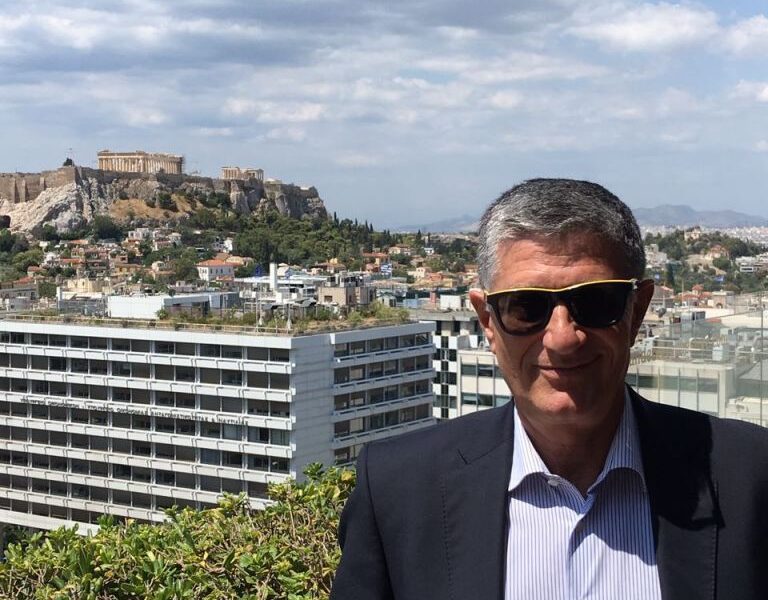Former top Mossad agent on the modus operandi of Iran’s intelligence

The recent arrests of Pakistani nationals with intentions of attacking Israeli targets on Greek soil has brought to the fore a multifaceted spy game. After expressing gratitude to his Greek counterpart Kyriakos Mitsotakis, Israeli Prime Minister Benjamin Netanyahu’s office praised the effectiveness of the Greek intelligence service (EΥP) and its cooperation with Mossad, Kathimerini contacted Mossad’s former head of the International Liaison and Operational Division, Haim Tomer, the man who for many years organized the Israeli service’s actions abroad. Having served as chief of the service’s counterterrorism division, Tomer explains the methods of action of the Iranian intelligence services allegedly behind attempts to set up terrorist cells.
How does Iranian intelligence operate abroad?
The Iranians have many organs of intelligence. They have Pasdaran (a multi-service primary branch of the Iranian armed forces). They have a couple of sub-organizations that operate outside of Iran. Nevertheless, the modus operandi of Iran could be characterized by four main lines. The first line is “deniability.” From February 2008, the first time that they were exposed in Azerbaijan to an attempt to carry out an attack against the Israeli Embassy in Azerbaijan, the Iranians acted together with other nationalities, normally Lebanese, and, in many other cases, like in Cyprus, they recruited Lebanese that are residing outside of Iran and Lebanon carrying passports such as Swedish, Turkish and Pakistani. In that case, they have what we call a kind of a “deniability,” the capability to say “this is not our people.”
The second line is that they are looking for what we call “available targets.” Targets that you do not need very sophisticated operational capability in order to carry out attacks against them, like embassies, transportation companies, places like the Chabad House, which are protected but not heavily protected. The third line is, “let’s go to countries which if we are exposed, they do not harm any strategic interests of the Islamic Republic.” In that respect, I think that Greece or Bulgaria, even Turkey, are countries that the Iranians calculate as territories which do not bear a lot of damage to their international interests if they are blamed for the successful attack. The last line is to find countries with long borders, naval or ground borders, to which they can infiltrate their people, and equipment. They did it in Thailand through Indonesia. In Greece they did it via the borders with Turkey. In Bulgaria, on the hit in Burgas, they did it via the borders with Greece at the time. We got to know that their people came to Bulgaria through Turkey and through Greece.
What methods are they using to recruit foreign agents?
When you are looking for operators the aptitude test is to find people that can act undercover. That is consideration number one. Consideration number two is if those people are able to carry out clandestine operations. Some recruitments are being done directly by the operators of Hezbollah, which is a kind of subordinate organization of the Iranian Al-Quds forces. They are recruiting people all over the world, Shiites from Pakistan, from Turkey, from Azerbaijan, from Sweden, and even from Germany. If you look back over the last 20 years, you’ll see that they normally recruit Shiites Muslims that have double identities.
Based on your experience, the Iranians prefer mass hits, for example at restaurants or individual high-value targets, such as foreign officers.
We know for sure that there is ongoing pressure for the Iranian authorities to carry out attacks against Israeli/Jewish targets that they see as a kind of a revenge for things that happens to them in Iran. So, under this kind of political or strategic dictates of the high levels, the medium levels are looking for targets. So, they are sending down a kind of dictate, “Bring us targets and give us links.” Each one of the operators in the field is sending a target to its operator. Finally, somebody upstairs up in the echelons is saying that this target is better than the other. But if you ask me about the type of targets, it could be an embassy, it could be a businessman. I am speaking about things that already happened, not about future things. It could be a tourist site, as happened in Turkey. They tried to use yachts in order to attack yachts of tourists within which they thought at the time there were many Israelis.
In which ways do they transfer the money to the terrorists?
From my experience, I can tell you that they are using almost every possible means of money transfer, every possible means. Payments by cash, or by using what we call “undercover bank accounts,” while from time to time, they even use semi-formal channels of money transfer, for example through Hezbollah, as a kind of filter between them and the receiver.
How close was the cooperation between Mossad and the Greek intelligence service during your days?
For the last 25-30 years there has been very good cooperation between the Israeli governments and the Greek governments, and between the Israeli services and the Greek services. We have common interest in the eastern basin of the Mediterranean. We have a common military cooperation and a common intelligence cooperation. What I remember from my time is that the cooperation was excellent and I believe that it is still excellent.





